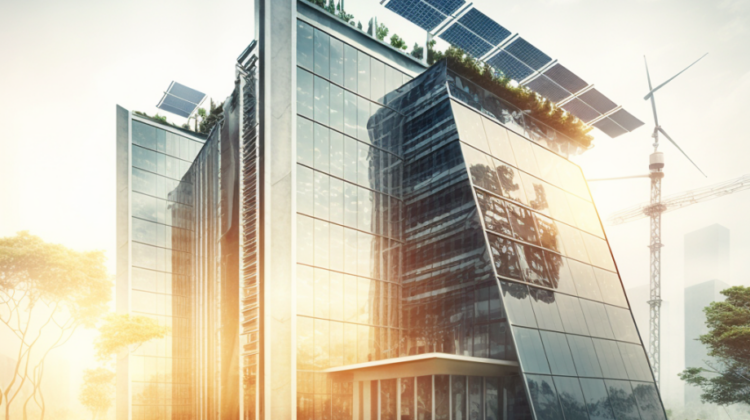
Solar power has become increasingly popular as a viable and sustainable energy source in recent years. With the decrease in costs and the increasing efficiency of solar panels, it has become a viable option for commercial buildings. Many businesses are now opting for solar power for its economic and environmental benefits. But do solar panels work on commercial buildings? The answer is yes. Let’s look closely at how solar panels work on commercial buildings.
How Solar Panels Work
Solar panels convert sunlight into electricity using photovoltaic (PV) cells. These cells are made up of layers of silicon, which absorb the photons from sunlight and release electrons. When these electrons are captured and channeled, they create an electric current that can be used to power devices.
Commercial buildings typically use a more extensive array of solar panels to meet their energy needs. The panels are usually mounted on the roof of the building, where they can receive direct sunlight throughout the day. The solar panels are connected to an inverter, which converts the DC power generated by the panels into AC power that the building can use.
Advantages of Solar Panels on Commercial Buildings
Solar power has many advantages for commercial buildings. Firstly, it is a clean and renewable source of energy that reduces the building’s carbon footprint. This is important for businesses that want to demonstrate their commitment to environmental sustainability and reduce environmental impact.
Secondly, solar panels can significantly reduce energy costs. A commercial building that relies solely on traditional energy sources can face high energy bills, especially during peak usage periods. With solar panels, businesses can generate electricity and reduce their reliance on the grid. This can result in significant cost savings over time and provide a hedge against fluctuating energy prices.
Thirdly, installing solar panels can increase the value of a commercial building. Buildings that have installed solar panels are often seen as more desirable and can command higher prices when they are sold or leased. This is because solar panels are a long-term investment that can provide a reliable energy source for many years.
Challenges of Solar Panels on Commercial Buildings
While solar power has many advantages for commercial buildings, some challenges need to be addressed. Firstly, the initial cost of installing solar panels can be high. However, this cost can be offset by the long-term savings that businesses can realize through reduced energy costs.
Secondly, not all commercial buildings are suitable for solar panel installations. The orientation and angle of the roof, as well as the shading from nearby buildings or trees, can affect the performance of the solar panels. Additionally, some building structures may need help to support the weight of the solar panels.
Finally, there may be regulatory and bureaucratic barriers to installing solar panels on commercial buildings. Some local and state governments have specific regulations regarding solar panel installations, and businesses may need to obtain permits or approvals before they can install solar panels.
Solar panels can be a highly effective way for commercial buildings to generate clean, renewable energy and reduce energy costs. However, some challenges need to be addressed, including the initial cost of installation, suitability of the building for solar panel installation, and regulatory and bureaucratic barriers. With the proper planning, investment, and support, solar power can provide a long-term and sustainable solution for commercial building energy needs.